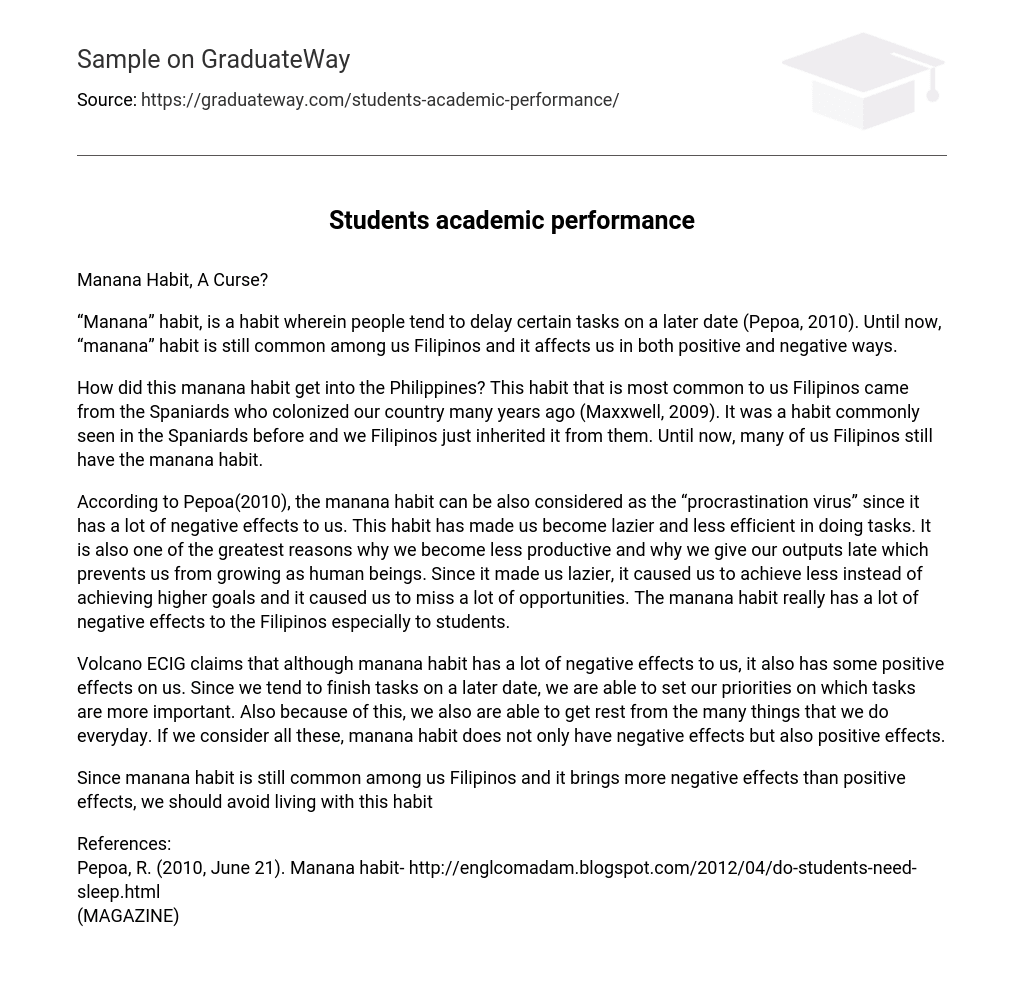Is Tomorrow’s Habit a Curse?
The “Manana” habit is when individuals put off completing certain tasks until a later date (Pepoa, 2010). The habit is still prevalent among Filipinos, impacting us both positively and negatively.
The manana habit, which is widespread among Filipinos, was introduced to the Philippines by the Spaniards during their colonization of our country many years ago (Maxxwell, 2009). It was a prevalent practice among the Spaniards and we Filipinos adopted it from them. To this day, many Filipinos still possess the manana habit.
According to Pepoa(2010), the habit of manana can also be referred to as the “procrastination virus” due to its multitude of negative impacts on us. This behavior has made us lazier and less efficient in completing tasks. It is also a major contributor to our decreased productivity and tendency to submit work late, hindering our personal growth. Additionally, it has led to lower achievements and missed opportunities, particularly affecting Filipino students.
Volcano ECIG argues that although the “manana habit” can have numerous adverse effects, it also possesses some beneficial impacts. This habit allows individuals to prioritize tasks based on their importance, as they tend to complete them at a later date. Additionally, it grants people the opportunity to rest from their daily commitments. Consequently, when considering these aspects, the manana habit is not solely characterized by negative consequences but also encompasses positive ones.
Considering that the mañana habit remains prevalent among Filipinos, it is crucial that we steer clear of embracing this habit due to its predominantly detrimental consequences.
References:
Pepoa, R. (2010, June 21). Manana habit- http://englcomadam.blogspot.com/2012/04/do-students-need-sleep.html
(MAGAZINE)





